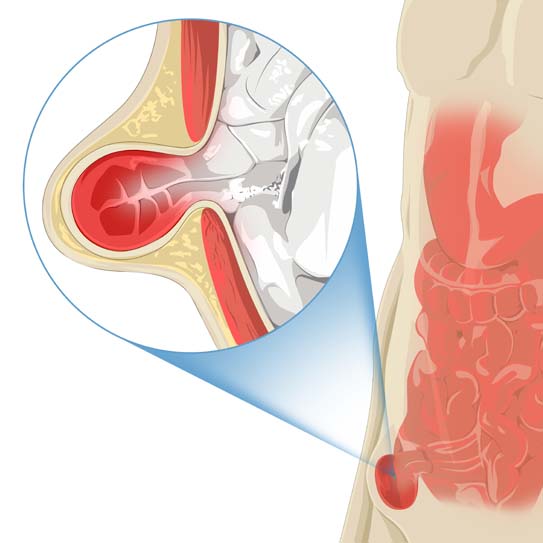Pristyn Care is the best and most reliable surgical treatment provider in Dhaka. At our treatment facilities, we prioritize enhancing patient comfort and offering a secure, hygienic, clean, and sanitized environment. We make use of the most recent technology and USFDA-approved surgical and diagnostic tools to provide the highest quality services and maintain high standards of healthcare.
Our doctors are adept at both the traditional open technique and the cutting-edge laparoscopic technique for performing the best hernia repairs. To lessen the possibility of complications related to the mesh, we also make sure that the treatments use top-quality hernia mesh. Our patients receive individualized care from us, and we support them throughout the course of their treatments.
Here are some more reasons why we should choose Pristyn Care in Dhaka:
So, if you have symptoms of a suspected inguinal hernia, don’t delay in getting the treatment. Contact Pristyn Care and book your appointment today.

![function at() { [native code] }](https://img.pristyncare.com/treatment%20section%2FInguinal-hernia.jpg)
Diagnosis and Treatment for Inguinal Hernia
When a doctor performs a physical examination, the bulge will be checked as part of the diagnosis of a hernia. Following are the tests recommended for a correct diagnosis:
All of the above tests are significant. Testing will assist in determining how to treat a hernia based on the results of these tests.
Patients with hernias are treated by Pristyn Care using both the cutting-edge laparoscopic technique and traditional open surgery methods. The two approaches are slightly different from one another.
Laparoscopic surgery makes hernia repair procedures safer, more efficient, and makes the recovery smoother and easier. However, not all patients benefit from the laparoscopic procedure. Hence , our doctors select the best method for the patient. You can schedule a consultation with one of our hernia specialists to find out more about the procedure.
If you have an inguinal hernia, then you must follow the directions recommended by your doctor. You will likely receive instructions from your surgeon before the repair of an inguinal hernia.
Generally, recovery after inguinal hernia repair surgery can take around 2 weeks. Most patients get discharged on the same day after the surgery.
Here are some ways to boost recovery after inguinal hernia repair surgery:
Strictly follow the above-mentioned precautions along with the prescribed medications to speed up your recovery after the surgery.
Delivering Seamless Surgical Experience in Bangladesh
Pristyn Care provides consultation for 50+ diseases and treatments such as Piles, Hernia, Kidney Stones, Cataract, Gynecomastia, Circumcision etc. across 3+ major cities in Bangladesh.
Our surgeons spend a lot of time with you to diagnose your condition. You are assisted in all pre-surgery medical diagnostics. We offer advanced laser and laparoscopic surgical treatment. Our procedures are USFDA approved.
A dedicated Care Coordinator assists you throughout the surgery journey from insurance paperwork, to free commute from home to hospital & back and admission-discharge process at the hospital.
We offer follow-up consultations and instructions including dietary tips as well as exercises to every patient to ensure they have a smooth recovery to their daily routines.
The average cost of a inguinal hernia surgery in Dhaka is relatively more affordable as compared to other countries across the globe with prices ranging from ৳ 90,000 to ৳ 100,000. It is to be kept in mind, however, that the exact cost of a inguinal hernia surgery will depend on multiple factors like method of surgery, severity of symptoms, city you undergo surgery and hospital of choice.
If you experience any of these side effects before or after surgery, call your doctor right away.
Groin hernias result from protrusions of tissue between the muscles between the upper thigh and lower abdomen, known as inguinal hernias. Hernias in the inguinal region typically develop from an opening in the muscle wall before birth that should have closed.
Inguinal hernias are most common in people aged 75 to 80, and the chances of having one increase with age. The most common age group for inguinal hernias in children is 0 to 5 years old. Premature babies are more likely to develop inguinal hernias.
It is usually possible to return to work after one or two weeks. However, if your job requires manual labor, you may need more time off. The healing process can be aided by gentle exercises, such as walking, but you should avoid heavy lifting and strenuous activities for at least four to six weeks following surgery.
You can’t detect a hernia beforehand. But you can follow the below-mentioned healthy practices to avoid such diseases and reduce the strain on your abdomen if it has already developed.
If the inguinal hernia is left untreated, it can lead to various serious complications such as:
Your doctor will probably ask a few questions on a number of topics, including: